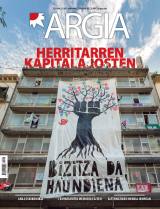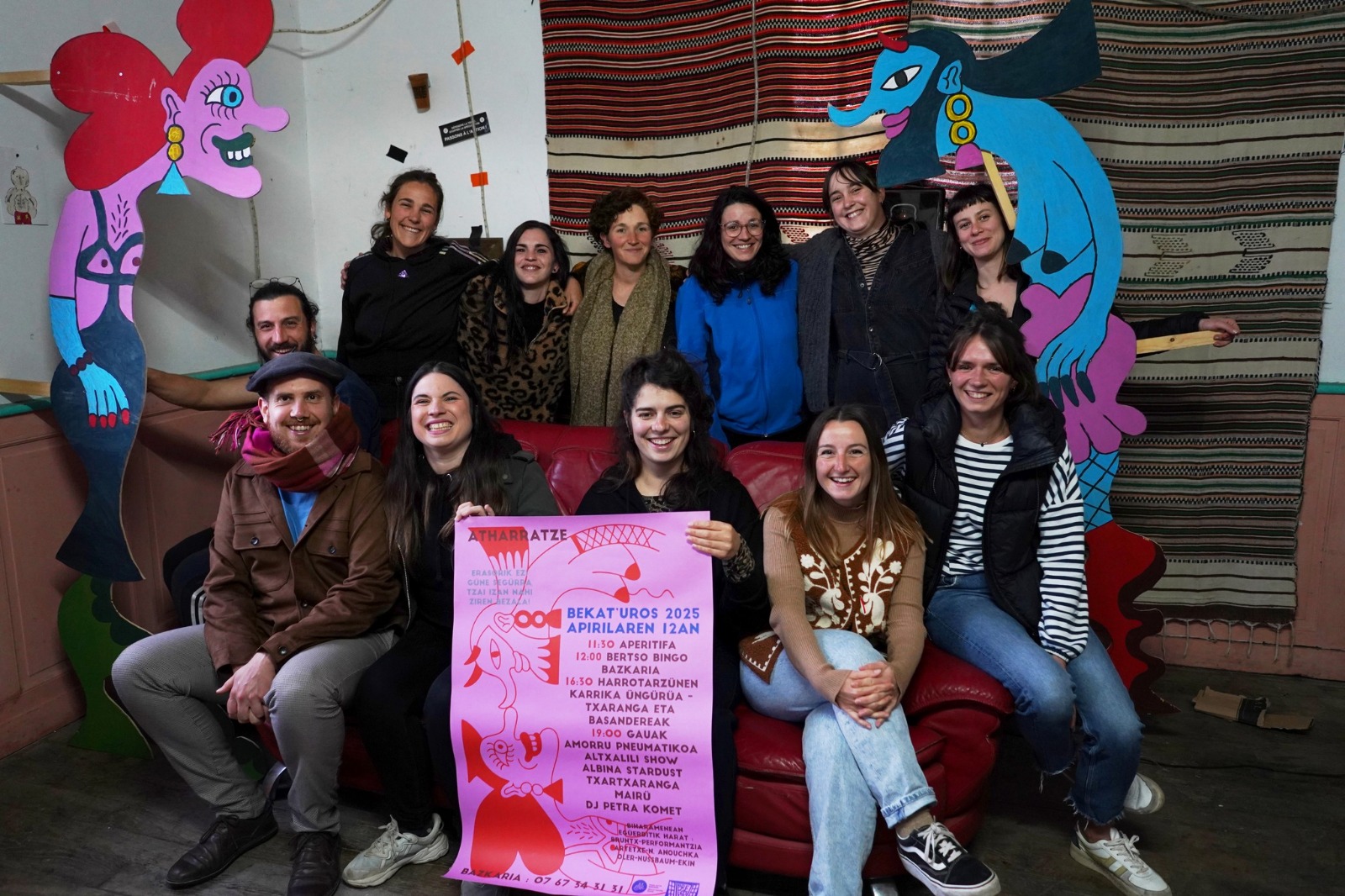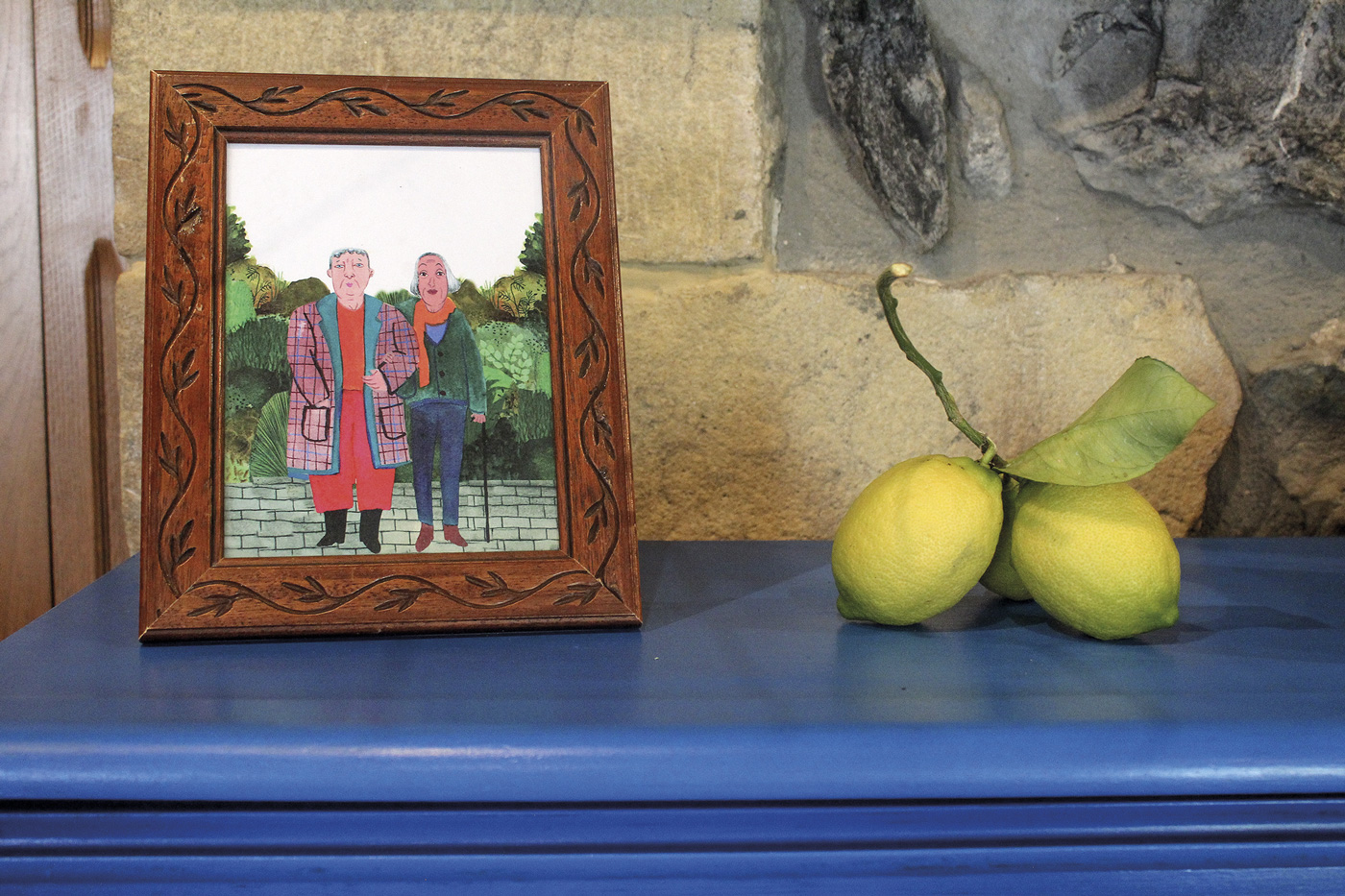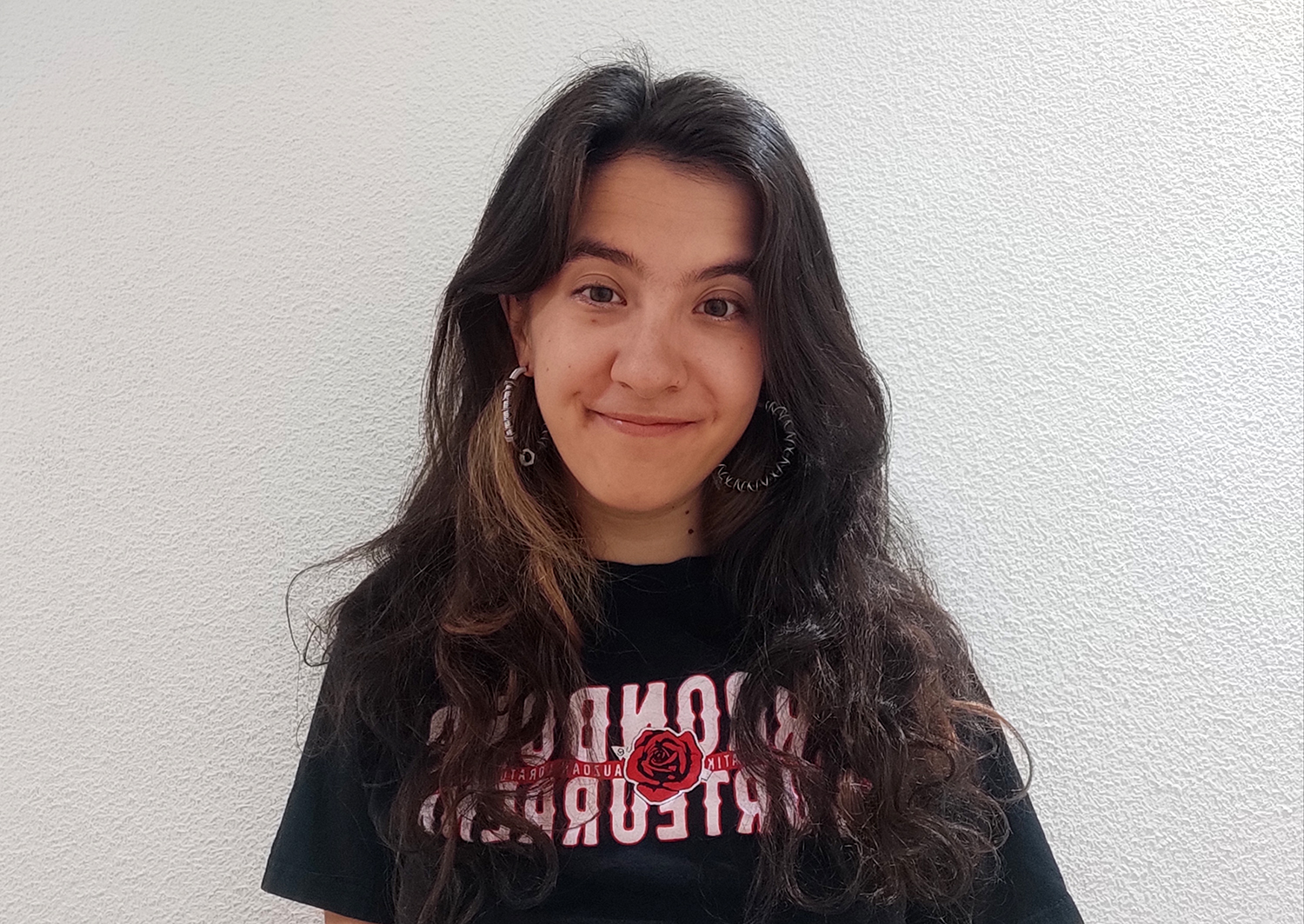"The goal of comics is not only to make lesbians visible, but to make them visible positively"
- Ana, L.S.B., faces daily headaches with good humor. Ana Lesbicomica! protagonists of the publication. Gehitu, who has been in the magazine of the association of lesbians, gays, transsexuals and bisexuals of the Basque Country for years, has made the leap to the book. A total of 5,000 copies have been produced for use in workshops on sexual diversity and for anyone who wants to obtain them free of charge in libraries, at Gehitu headquarters or on the Internet. We've talked to Teresa Castro Gutiérrez, author of the comic book.

Who is Ana?
I read a lot and I missed reading stories that made me feel replaced, because as a lesbian woman, I didn't find those kinds of references. And I decided to tell my story, which may be the story of many others. This is how Ana was born. Ana tells her day to day, sometimes dramatic fragments, but with a lot of humor, precisely to dedramatize those experiences and for lesbians who read to see that they can have a full and happy life.
Humor therefore has a role importante.Es the only way to survive many things,
not only in the comic book, but also in life. If we get stuck in the day-to-day discomfort, we don't move forward.
How much does Ana de Teresa have?
According to the story you tell. Some are very personal, and other times the starting point is the subject (for example, if the magazine has dedicated the number to AIDS or bullying, I will make a comic book about it), and I will talk about the experience you may have on this issue. I have worked on issues such as the time to come out of the closet, love, sport, the obsession with the body, religion…, everyday issues from the perspective of Ana. Ana lives in the world and things happen to anyone. What happens? Ana is trying to deal with the added problems we sometimes have to be a lesbian.
“The comics that I found with lesbian protagonists were in other societies, it was hard for me to identify with them.”
You have an added problem. As an LGBTI and a woman, does Ana have a double burden?
Yes, and I think society is not yet aware of how little it lends us as a woman and as a lesbian. Women are in the background, and lesbians did not exist until recently, because female sexuality, in the first place, was not taken into account or sexuality between two women was considered secondary.
Some of the issues you discuss will also be taboo for some.
Sex between women, for example. But you can also talk about that, and nobody should be outraged by it.
How do you understand this comic book: a need to empty your bowels, a claim, a tool to help others?...
At first it was born of a need of mine, and I would say that everything you say today combines it. It's an important part of my activism, and I'd like to be a tool to help others, so that others don't feel as bad as I've felt, because I'm a lesbian.
In fact, you say that Ana is humorous, but in the comic book you can find many dramatic passages related to childhood and adolescence. Do you think that the young people of today also live?
I would like to say that things have changed a lot, but I do not know if they have changed so much. At least now there is sexual and gender diversity, because 35 years ago, when I was little, it seemed that it didn't exist, and they have the advantage that, more or less, they have positive references, lesbians aren't always evil or they don't cut our veins directly because we're extremely miserable. And that's very important, because the main purpose of my comic book is to visualize not only lesbians, but also visualize them positively. I would be content with making lesbians visible twenty years ago, but today it is not enough, because we are sending a very negative message: that lesbian women are not whole women because they do not have affective-sexual relations with a man. And going back to the question, is it easier to live with a diversity than it was before for children and teenagers right now? The truth is, I have a lot of doubts. It's a complicated age, and that's why I would particularly like the comic book to come to them.
“As for the image, Ana does not break stereotypes, but why does Ana’s male appearance have to be negative? Why not claim this opportunity?”
Because these kinds of
comics are still needed… In recent years, comics have dealt with more mature issues, we have jumped from superheroes and styles like Zipi and Zape to other kinds of jobs, and lesbian women have also been part of this comic book, but in very small proportion. My comics with lesbian protagonists were placed in other societies like the United States, or the comic book Le bleu est une couleur chaude in French society [the comic book that inspired the film La vie d’Adele], and that environment is not ours, it was difficult for me to identify with them. Perhaps the readers of Euskal Herria feel that Ana is closer.
This lack of reference will also influence the lack of knowledge and the topics that people may have in relation to lesbianism.
And I'd like to break exactly stereotypes. As for the image, Ana does not break the stereotypes, as it responds to a rather masculine aspect, but there are also lesbian women with another aspect, and at the same time, why does Ana's masculine aspect have to be negative? Why not claim this option?
You've collected the money through crowdfunding to get the comic book out. You launch the campaign and you start to suffer homophobic attacks.
I haven't been out of my comfort zone for years, moving through the spaces where I feel comfortable. And all of a sudden, by the crowdfunding echo, starting to receive anonymous attacks on social media was brutal to me. Harder than entering my sexual orientation, entering my drawing: “I insult you because you’re a lesbian, but I don’t call you a lesbian, I’ll come in with something that will hurt you.” In the end, we decided not to respond so as not to feed the snowball, but we denounced publicly because it is also necessary. All of this confirmed to me the need for these kinds of comics.
.jpg)
Is comics an appropriate format for your purposes?For adolescents with few
reading habits, language can be more attractive and accessible compared to the book or with a handsheet. You will certainly at least take a look at it, and in addition, the comic book offers many possibilities to identify with the characters.
Is there a lot of hobby for comics?
I think there's a hobby. Manga, for example, has a lot of people hit, but the truth is that reading, in general, is falling apart. I don't know if we get to young people, because some lose the habit of reading earlier. On the other hand, just like we carry our stereotypes and backpacks, the comic also has its own burdens, and there are those who keep thinking that the comic book is a matter of children, that tells stupid stories, that has no other purpose than to entertain… and many people who read books will not bring him anything new, because he thinks that he will not bring him anything new. Fortunately, these prejudices are also changing.
What are your sources of inspiration?
I've read so much that I wouldn't know how to say, I like a lot of things. I think the comic book shows that I'm still looking for my style. The initial stories, for example, do not look like the most recent ones, either in the layout, or in the way they are told…
“I think the comic shows that I’m still looking for my style. The initial stories do not look like the most recent ones, either in their outline, or in their way of telling...”
What would you like me to get this comic book?
Because it has a diversity of gender or gender that doesn't follow the norm, that no one feels marginalized or just in this society.
And will the day come when the lesbian being will not be the leit motiv of the comic book, but one more characteristic of the character? In this sense, in the collective we have two objectives: on the one hand, that, being an oppressed minority,
our history comes to light, testifies; and on the other, that, as you say, my gender and sex identity is not limiting and determining in my life, and in a comic book, for example, that lesbianism is nothing more than a characteristic of the character who is experiencing an adventure. Right now, in the reality we live in, both of them are very important.
You can download the comic in the link below.
.jpg)
The Leioa School of Education was full of students last Wednesday because Samantha Hudson was coming. She is a transgender Mallorcan artist, singer and influencer born in 1999. The star of the People Singing Encounters had an endless line to give selfies and autographs, and his... [+]
1984an ‘Bizitza Nola Badoan’ lehen poema liburua (Maiatz) argitaratu zuenetik hainbat poema-liburu, narrazio eta eleberri argitaratu ditu Itxaro Borda idazleak. 2024an argitaratu zuen azken lana, ‘Itzalen tektonika’ (SUSA), eta egunero zutabea idazten du... [+]

























